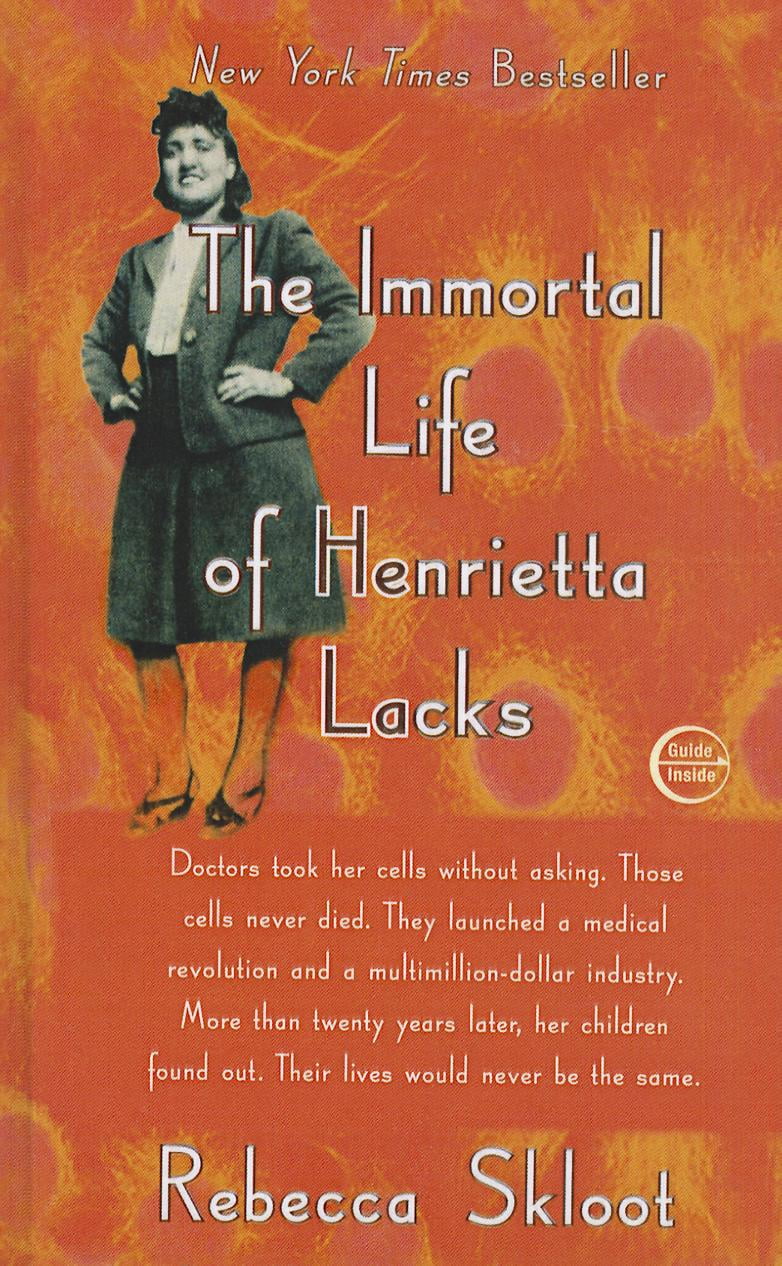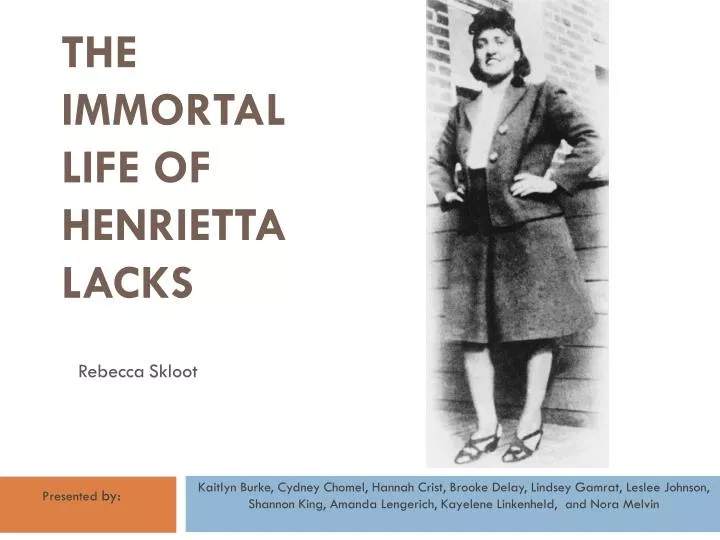

Rebecca Skloot: It's funny, writers aren't supposed to ever think their book can get a really big audience. The Wall Street Journal: What's your reaction to the incredible response the book is getting? She talked to The Wall Street Journal about working on "The Immortal Life of Henrietta Lacks," her first book. Skloot, a science writer, cycled through three publishers and four editors, and spent 10 years working on the book. Getting the story behind the HeLa cells from scientists, doctors, bioethicists and the Lacks family was just half the battle.

Lacks's descendants were unaware of how extensive her contributions to medicine were until recently, and they were reluctant to talk to Ms. Skloot encountered in her effort to exhume a long overlooked story.

Scientists working with her cell cultures, known as HeLa cells, have developed cancer treatments, vaccines, and in vitro fertilization and cloning technology.The book also details the hurdles Ms. Her endlessly multiplying cells have been used in thousands of experiments around the world. Doctors harvested some of her cancer cells without her consent and used them to create the first human cell culture that could be successfully replicated and studied. This entry was posted in The Immortal Life of Henrietta Lacks II, Uncategorized on Octoby Will Cochrane.The nonfiction piece of work centers on the story ofĪn African American woman from Virginia who died of cervical cancer in 1951. Should consent always be required when a person is alive? Should it be when dead if it is deemed to be for the greater good of humanity? In the eyes of medical professionals, are we just a warehouse of potential parts they can use to fix others? These are just questions that came to my mind when reading The Immortal Life of Henrietta Lacks part II. In conclusion, the second part of the biography is one that sparks personal issues for me over the treatment of Henrietta’s name as well as arguments surrounding patient autonomy. It also shows the interaction between Henrietta’s family and the doctors, who due to her passing now required consent to harvest more cells.

In this part, it talks about a polio outbreak that Henrietta’s cells helped to find a vaccine for as well as the discovery that humans have forty-six chromosomes. The second part of The Immortal Life of Henrietta Lacks focusses primarily on the time and events that take place after the passing of Henrietta – including the mass production of her cells, the news article written about the cells and the discoveries that came as a result of her cells. How much do they care, or are you simply another task that they must complete? Another potential warehouse of parts. It makes me think about the medical system as a whole. It makes her seem like a nobody because the writers could not take the small amount of time to correct themselves. It feels that there is no care given towards Henrietta or the sacrifice that she gave. Primarily of these is that in doing so it feels that the humanistic nature of the case it was taken out. However, when relating to the changing of her name, personal issues begin to arise. I have less strong feelings towards her name being left because I agree with privacy for the family. In these articles, it was common that Henrietta’s name was mistaken for another name or that her name was not included at all for privacy. This subject falls under autonomy – surely it a person has the right to self-govern there-own body, and therefore consent is required for the harvesting of their cells? On the back of this, does someone dead still have autonomy? After thinking about this, I could see more clearly why Henrietta’s family were unsure about giving consent to the doctors.Īnother area that causes concern in this part of the biography was numerous articles that were published or going to be. Thinking from a logical viewpoint, it would appear to make more sense that consent would be required whilst the person is still alive and then not required when dead. I found this an especially difficult subject to get my head around. First of which is the subject surrounding the requirement of consent after her death in comparison to before. Two main things struck me within this part of the biography.


 0 kommentar(er)
0 kommentar(er)
